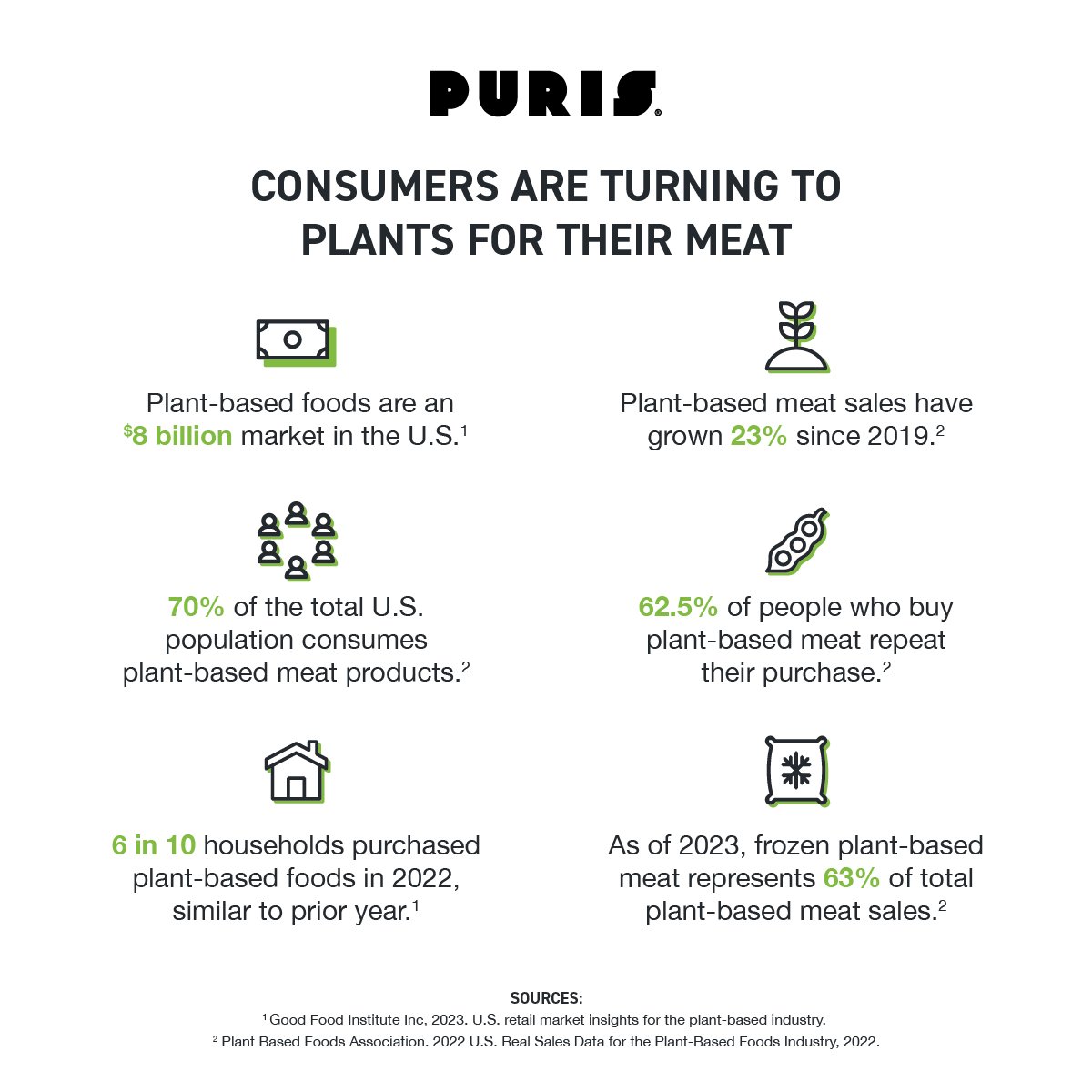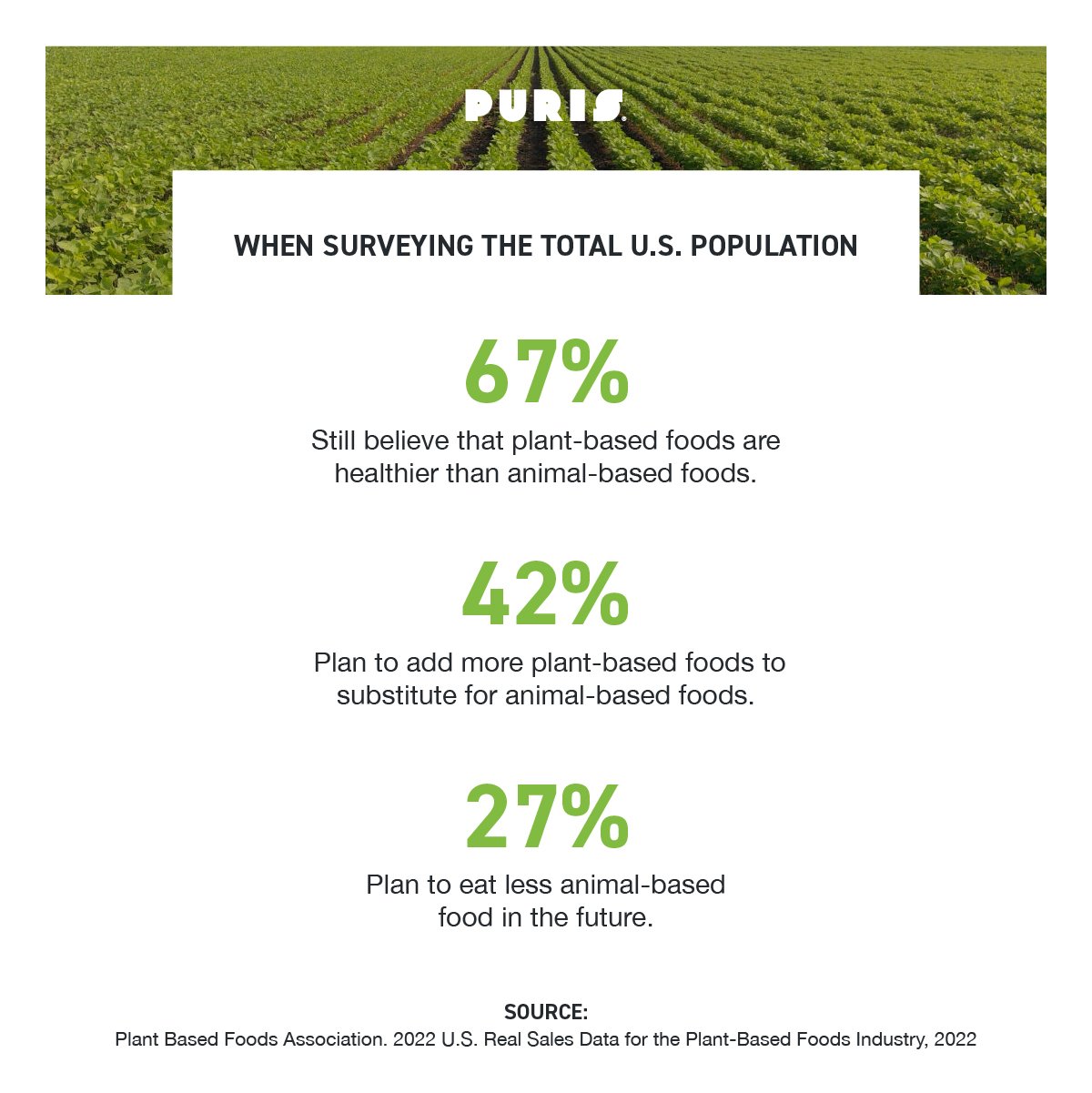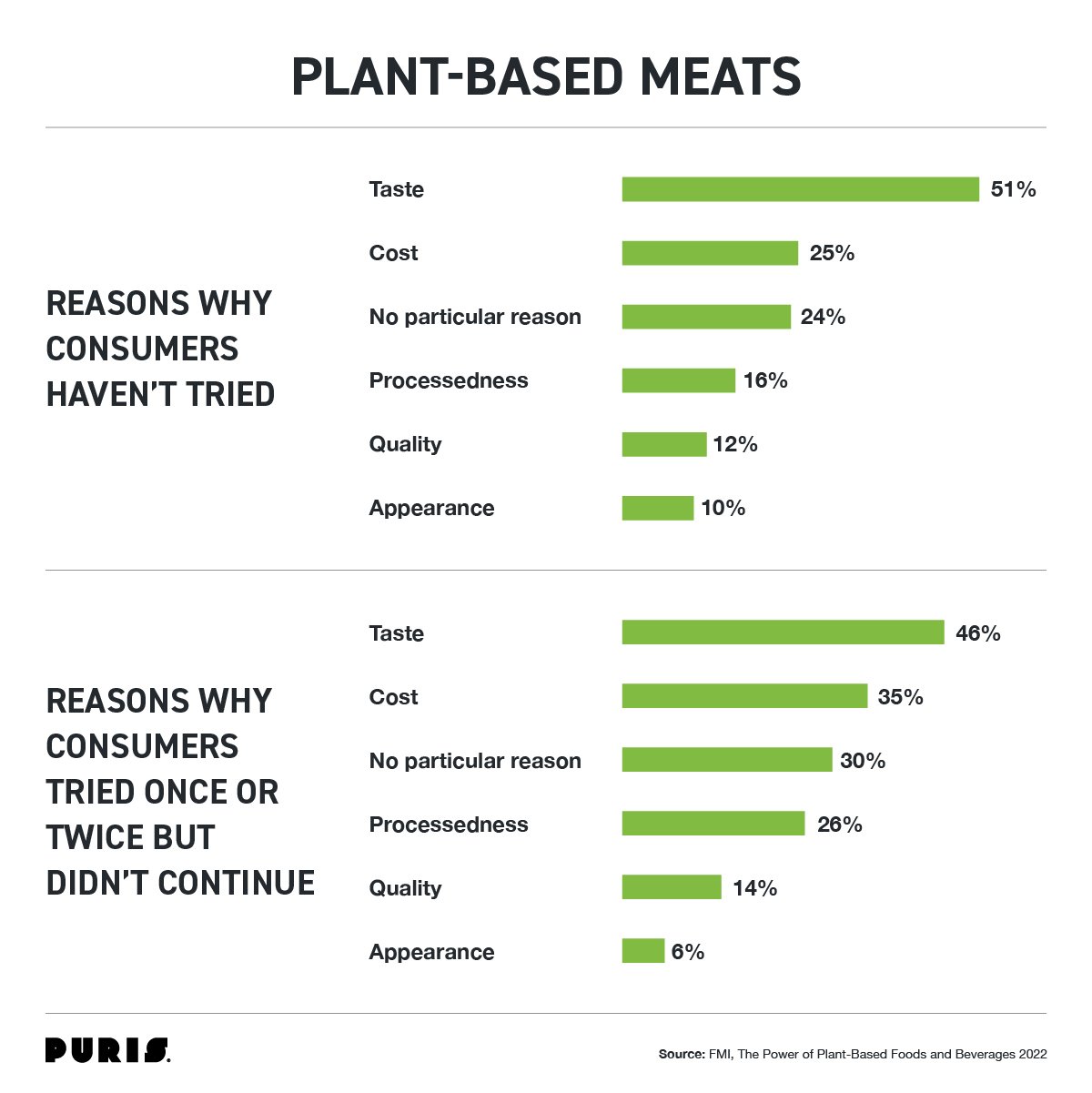With more and more consumers seeking out plant-based options for health, sustainability, and animal welfare reasons, the demand for veggie burgers, meatless chickens, and other plant-based meats is skyrocketing.
This presents a huge opportunity for food brands, but it also means you need the right ingredients to develop tasty, nutritious options that will appeal to the masses.
Are plant-based meats overly processed?
The term “processed food” has been closely aligned with junk food and loaded with fillers and other excessive additives. But despite the bad connotation, nearly every food that we consume is processed.
The real difference between foods that are good for humans, and those that can have negative health effects, has to do with everything that is found in the actual foods we consume.
Consumer habits continue to make a market for alt meats
People are buying more alternative meat
If the signs for plant-based meats at grocery stores aren’t evidence enough, alt meat options are gaining traction with consumers.

Dietary patterns are changing
There are a few consumer trends changing the way people add to their weekly diets, including:
- Food intolerance and allergies
- A search for cleaner products with fewer ingredients
- Concerns over hormones and antibiotics in animal-based meats
- An increased demand in including more protein in everyday food intake
Sustainability consumerism trends are on the up and up
As climate change and attention to where foods come from become points of focus for consumers, sustainability is beginning to trend.

At PURIS, we practice regenerative agriculture. This means we embrace farming practices that support biological processes occurring naturally on earth, as well as support the people who work the land. It takes many forms, including pasturing animals, investing in soil health, and treating farmers and workers fairly
Animal welfare is a rising concern
Alternative meats help address pressing animal welfare concerns by providing consumers a cruelty-free food option that doesn't rely on industrial farming practices, which many find ethically troubling.
Why pea protein for alternative meats?
Not all plant proteins are alike — and while plant-based meats are gaining popularity, there is still a lot of room for improvement. Largely, consumers are finding that taste and overall experience didn’t meet expectations.

Note that while some consumers haven’t tried alt-based meat for specific reasons, many have no reason they haven’t explored this new segment of the meat market. Having a protein in your alt-based meat that can boast some of the following qualities could help you stand out on the shelf and get your name out to these unconverted consumers.
Realistic mouth feel
PURIS’s extrusion proteins have an excellent crosslinking ability, allowing for a juicy, meat-like texture that can substitute the chewy meat texture many customers are used to including in their diets.
This mouthfeel is possible because of peas':
- Extrusion ability — PURIS Pea proteins can be extruded under high heat and pressure to create meaty, fibrous textures mimicking animal proteins. This makes them versatile for producing plant-based meat alternatives.
- Shearing capacity — PURIS Pea proteins subjected to high shear form stretchy, meat-like fibers. This is ideal for imitating shredded pork or chicken textures in vegan products.
- Binding properties — PURIS Pea proteins naturally bind well to create a cohesive, meat-like chew and mouthfeel. This gives better replication of animal proteins.
- Ability to hydrate — PURIS Pea proteins readily absorb added water to achieve the desired moistness when formed into meaty textures.

Clean taste profile
With a neutral, clean profile, pea protein won't compete with seasoning flavors — they’ll simply adopt the flavor of whatever you add to your recipe, rather than allowing a strong vegetable taste to dominate the taste.
Low-sodium
About 90% of Americans 2 years old or older consume too much sodium. As a result, heart disease and other conditions are increasing across the United States. And about 70% of sodium consumed is from processed and restaurant foods.
Plant-based foods deliver ample protein and other key nutrients without cholesterol,
saturated animal fats, antibiotics, or hormones found in meat. Peas go a step further by significantly reducing sodium in meat products, making them more appealing to consumers looking to manage high blood pressure and minimize heart disease risk.
Machine-compatible proteins
Pea proteins are machine compatible and can be manipulated into different fibrous textures.
Compatible for a wide range of products
Pea proteins can be combined with other grains, starches, fats, flavors, and colors to craft diverse fibrous textures.
Positioning your brand as an alt-meat leader?
As the alternative meat market matures, consumers are searching for options that truly replicate the taste, texture, and experience of traditional meat. This presents an opportunity for food brands to become leaders in the space by formulating products that meet these demands.
Products crafted with pea protein check all the boxes in terms of consumer health trends while allowing flexibility to mimic a diverse array of meat textures and flavors. Find out how PURIS can help you create a product that will stand out to vegetarians, flexitarians, and carnivores alike.




